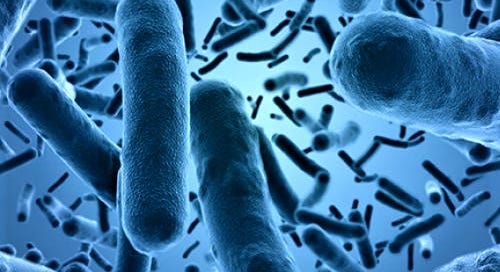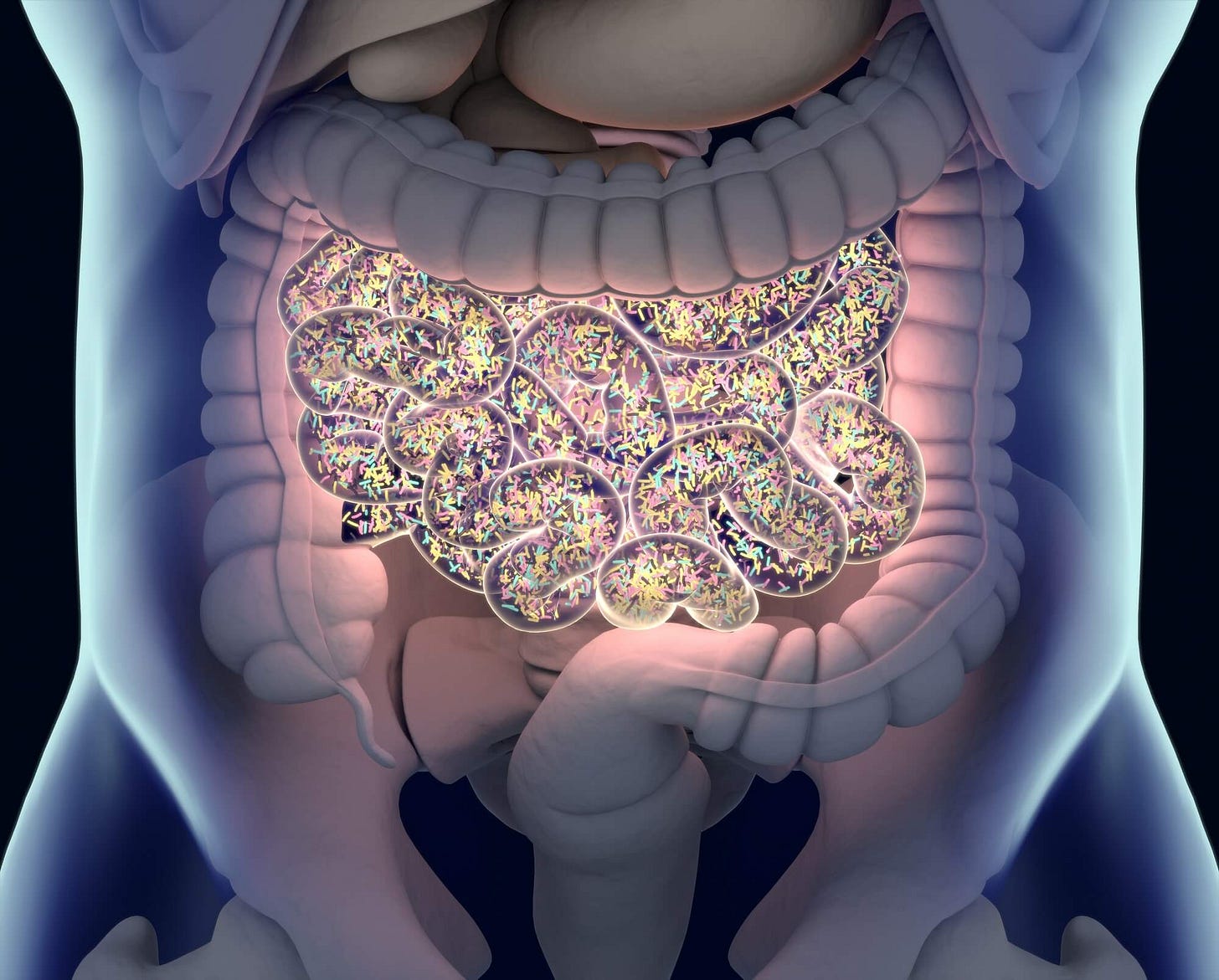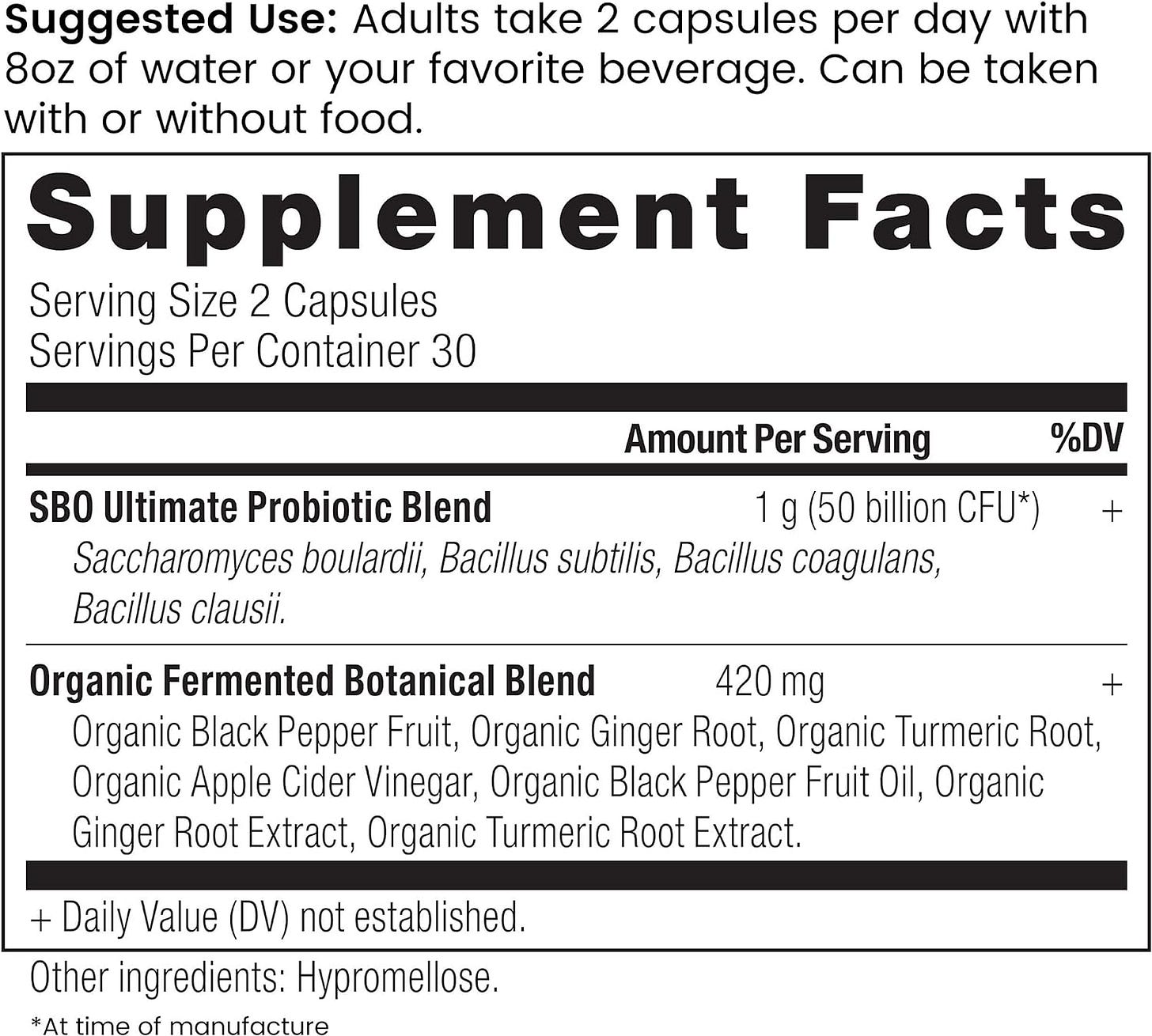Alchemical Wizard 24 : Spore Probiotics (SBO's)
Spore Probiotics, Sporebiotics or Soil Based Organisms (SBO's) are bacteria spores that work in our gut much like a gardener. Spores provide key “reconditioning” strains of bacteria that help protect and recondition our gut flora, and prepare it for the introduction of probiotics. They help our microbiome recover from on going assaults by fluoridated and chlorinated water, stress, medications, processed foods, refined sugars, harmful EMF's, and pollution.
Soil-based organisms are survivable probiotic strains that occur naturally in the soil and are generally found in unprocessed fruit and vegetables. Modern farming conditions like nutrient depleted soil, and modern diets lacking in raw fruits and vegetables make it hard to get these important probiotics! These probiotics are meant to be a part of our diet naturally, so they’re designed for survival. Our ancestors’ diets included these bacteria spores, but today we avoid touching dirt and scrub our vegetables to remove all traces of soil along with their naturally occurring organisms.
But first lets talk about our biological body as a sort of forest ecosystem. Our intestinal health is strengthened by the variety, composition and balance of all of those microorganisms. Diversity helps promote a hardier ecosystem that can better respond to the undesirable changes in our Gut Microbiome. It is the collective strength of the forest and its interaction of diverse species living within it which provide protection for the forest. And in this case the forest represents more than our entire biological bodies microbiome. This extends out into our Light body as well. As we are learning that these microorganisms communicate via electromagnetic signaling. And are influenced by the current Photonic energetic waves or “Air Showers” just as our entire Biofield Physiology is!
Like the ecosystem of the forest, the human gastrointestinal tract functions better when there is balance between its diverse elements. When bacteria and other microorganisms that reside in our gastrointestinal tract fall out of balance, the rest of our Biofield physiology can suffer.
Spore based probiotics are part of a group of derivatives of the microbe called bacillus. This genus has hundreds of subspecies. Essentially, spore based probiotics consist of the cell wall of bacillus spores. The first product of this kind came out in Germany in 1935 and was created by Gunther Enderlein, a German microbiologist.
Contrary to popular belief, the human biological body actually has the ability to produce its own vitamin C. This is done by a specific species of gut microbes, the bacillus, which converts sugar into vitamin C. It's also involved in producing vitamin K, which works synergistically with vitamin D.
There are at least 2,500 species of microbes living in our gut and most, if not all of them, serve our biological body in a symbiotic way. They either produce something we need, metabolize toxic products so they can be safely eliminated or help reset and balance our immune system and have immune tolerance, which is deeper than just fighting inflammation.
The bacillus very effectively modulates cytokines. Anti inflammatory cytokines are up regulated while inflammatory cytokines are down regulated, there by restoring balance between the two. This is important, as most of us are under daily assault from EMF pollution, glyphosate and atrazine contaminated food, airborne aluminum and other highly inflammatory environmental factors. Spore based probiotics work on all levels as an antidote to those assaulting factors!
Microbes communicate with each other and with our immune system. As it turns out, they do that through emissions of electromagnetic waves in the light and microwave spectrum. Some are also in the lowest frequency spectrum. So, microbes recognize each other and communicate with our immune system via electromagnetic signals. Chemical signals are actually secondary!
Okay. Some of the more popular Spore Probiotics to take right now for many of us that are not digging in the dirt, gardening, buying from the farmers markets frequently or making and eating fermented foods! A strong consideration while doing your own research!
1. Lactobacillus plantarum - is a widespread member of the genus Lactobacillus, commonly found in many fermented food products as well as anaerobic plant matter. Lactobacillus plantarum is shown to support healthy intestinal immunity. In addition, Lactobacillus plantarum is said to sharpen memory, fight cavities, enhance athletic performance, and promote weight loss.
2. Pediococcus acidilactici - is also a facultative anaerobe, meaning it can survive in conditions where oxygen is found in small quantities or even lacks entirely. Pediococcus acidilactici’s classification as an acid lactic bacterium. Theoretically, the Pediococcus genus is included in the Lactobacillaceae family, which accounts for its ability to produce lactic acid and an antiseptic called bacteriocin, two substances that greatly support digestion and immunity screening alike.
3. Bacillus coagulans - is a unique type of lactic acid forming probiotic that’s gaining considerable attention in the scientific world. B. coagulans (which is sometimes classified as Lactobacillus sporogenes) is replete with its own fair share of scientific backing. Again, it’s an exceptionally hardy strain when it comes to persisting amidst adverse environmental conditions. This is due in large part to its unique life cycle. Rather than simply living and dying, Bacillus coagulans has the unique ability to transform itself into a cluster of dormant spores that, technically speaking, are neither alive nor dead. They’re merely in a “readiness” state awaiting their time to come alive. Much like a seed that has yet to germinate, B. coagulans spores “hibernate” when they encounter unfavorable environmental conditions that threaten their survival. For instance, having to live inside bottles on non refrigerated grocery store shelves. They basically “sleep” in this dormant state until their surroundings become more favorable, at which time they “come alive” and resume their normative state of growing and spreading, populating the gut with their healing properties. This shelf stable spore supports healthy gut transit time, digestive comfort, healthy elimination and healthy digestive function.
4. Bacillus subtilis - is a robust strain that not only can withstand the gastrointestinal tract but also can positively affect the composition of the Gut Microbiome. It does this by forming endospores, durable protein envelopes, that protect it from heat, light, and other stressors. Studies have shown that this probiotic produces compounds that are naturally disruptive to harmful microorganisms. In essence, Bacillus subtilis helps displace unfriendly organisms in our biological body by affecting their ability to colonize. Several lab studies found that probiotic strains, including Bacillus subtilis, can bind mycotoxins (toxic compounds) produced by fungi, especially mold, that often contaminate corn, nuts and other foods. Not only did probiotic bacteria bind and break down these toxins, some strains were even able to fix cell damage caused by aflatoxins and mycotoxins. Bacillus subtilis also supports the production of beneficial enzymes in the gut, including amylase, protease, pullulanase, chitinase, xylanase and lipase.
5. Bacillus clausii – is a gram positive, rod shaped bacteria, soil based microbe that’s been in use throughout Europe since at least the 1960s. However, it is said to have been identified by name in 1995 by German bacteriologist Dieter Claus. What sets B. clausii apart from most other probiotic bacterial strains is its unique ability to withstand high pH environments. B. clausii also bears an exceptional tolerance for antibiotics, making it an effective adjunct for replenishing microbial flora during antibiotic treatment.
6. Saccharomyces boulardii - is a tropical species of yeast first isolated from lychee and mangosteen fruit in 1923 by French scientist Henri Boulard. Saccharomyces boulardii is used as a probiotic with the purpose of introducing beneficial active cultures into the large and small intestines as well as conferring protection against pathogenic microorganisms in our microbiome. Aside from alleviating numerous types of diarrhea, this fungus may work as a probiotic that may improve our gut microflora health and combat bacteria and yeast residing in our gut microbiome, including an over growth of Candida albicans!
When buying Spore probiotics or SBO's do research on what labs or companies have patented what strains and where they originated from! I know it's weird that microorganisms are patented. Living things are patented! More rabbit holes to go down! Or even better yet, learn how to ferment your own foods!
Blessings Everyone! We are Sovereign and We are most defiantly Freeing Ourselves!
Travis Carper - Ascension Health Coach / Alternative & Holistic Health Service https://www.facebook.com/traviscarper888/ | https://www.linkedin.com/in/traviscarper888/
Additional References :
Jordan Rubin: I Recovered My Health Because of Soil-Based Organism Probiotics - https://draxe.com/health/jordan-rubin-sbo-probiotics/
Are Soil-Based Probiotics (SBOs) Better Than Regular Probiotics? by Jordan Rubin - https://ancientnutrition.com/blogs/all/soil-based-probiotics-vs-regular
The complete guide to soil-based probiotics - https://www.lucymailing.com/the-complete-guide-to-soil-based-probiotics/
All About Soil-Based Organisms - https://www.optibacprobiotics.com/learning-lab/in-depth/general-health/all-about-soil-based-organisms
Why Eating Dirt (aka Soil-Based Organisms) Should Be Part of Your Daily Routine - https://draxe.com/nutrition/eating-dirt/
Soil-Based (SBO) Probiotics vs. Regular Probiotics - https://www.amymyersmd.com/article/sbo-probiotics
Why Soil Based Probiotics are Necessary to Heal the Gut - https://www.thehealthyhomeeconomist.com/soil-based-probiotics-plus-fermented-foods-heal-gut/
10 Fermented Foods That Are Easy to Make at Home - https://www.organicauthority.com/buzz-news/10-fermented-foods-you-can-easily-make-at-home
How To Make The Best Naturally Fermented Foods At Home - https://betterhomesteading.com/homestead-kitchen/fermentation/how-to-make-naturally-fermented-foods-at-home/
15 Foods To Improve Your Gut Health - https://sunwarrior.com/blogs/health-hub/foods-for-gut-health
Bonus Reference Audio :
How Healthy Soil Will Change the World - https://nutrition-world-podcast.castos.com/episodes/how-sbos-and-regenerative-farming-will-change-the-wxzx







